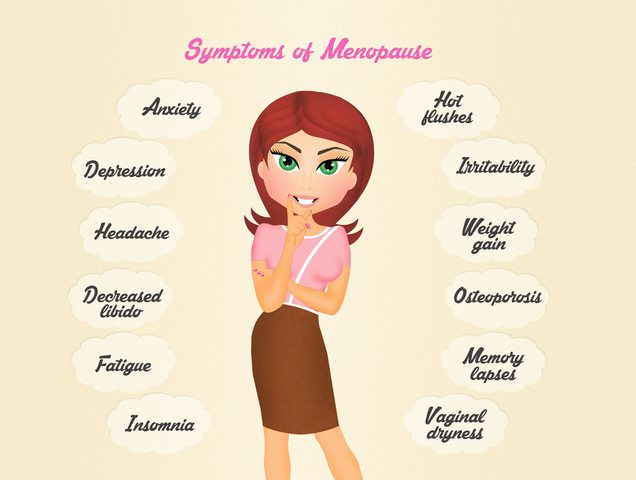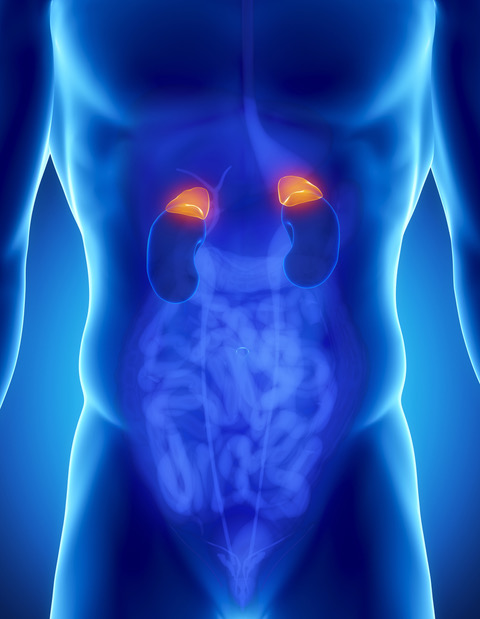Menopause Making You Look Masculine

How to Read Your Body
Learn to recognize common symptoms and uncover their underlying health issues
Understand the signs of nutrient deficiencies to manage your health
Explore the four metabolic body types and the core factors that influence them
Interpret your body's signals from head to toe to identify potential health concerns

How to Read Your Body
Learn to recognize common symptoms and uncover their underlying health issues
Understand the signs of nutrient deficiencies to manage your health
Explore the four metabolic body types and the core factors that influence them
Interpret your body's signals from head to toe to identify potential health concerns

How to Read Your Body
Learn to recognize common symptoms and uncover their underlying health issues
Understand the signs of nutrient deficiencies to manage your health
Explore the four metabolic body types and the core factors that influence them
Interpret your body's signals from head to toe to identify potential health concerns

How to Read Your Body
Learn to recognize common symptoms and uncover their underlying health issues
Understand the signs of nutrient deficiencies to manage your health
Explore the four metabolic body types and the core factors that influence them
Interpret your body's signals from head to toe to identify potential health concerns

How to Read Your Body
Learn to recognize common symptoms and uncover their underlying health issues
Understand the signs of nutrient deficiencies to manage your health
Explore the four metabolic body types and the core factors that influence them
Interpret your body's signals from head to toe to identify potential health concerns

How to Read Your Body
Learn to recognize common symptoms and uncover their underlying health issues
Understand the signs of nutrient deficiencies to manage your health
Explore the four metabolic body types and the core factors that influence them
Interpret your body's signals from head to toe to identify potential health concerns

How to Read Your Body
Learn to recognize common symptoms and uncover their underlying health issues
Understand the signs of nutrient deficiencies to manage your health
Explore the four metabolic body types and the core factors that influence them
Interpret your body's signals from head to toe to identify potential health concerns
Androgen, or testosterone, is a "male sex hormone" that generally appears in low levels in women. However, menopause often triggers higher levels of androgen. Here’s why and what you can do about it.
Before you can understand androgen, you have to get what’s happening with menopause and menopause symptoms.
During menopause, which generally happens at around age 52, a woman’s ovaries stop producing estrogen and progesterone, the two most common female sex hormones. When this happens, the hypothalamus tells the adrenal glands to take over and start producing smaller amounts of these hormones.
Normally, this does not cause severe symptoms or issues. After all, menopause is a natural and unavoidable biological process. It shouldn’t cause sexual or physical problems in the body, and healthy menopausal women can actually handle these lower amounts of estrogen and progesterone really well.
So why do issues arise?
Generally speaking, this happens when there is a problem with the adrenal system. If the adrenals are fatigued, they can’t produce the replacements that they’re supposed to.
The hypothalamus, then, stays "on" continuously requests those hormones from the body. That overactive hypothalamus causes menopausal symptoms like:
Hot flashes
Vaginal dryness
More belly fat
Loss of collagen
Muscle atrophy
Night sweats
Bone loss
Sleep problems
Decreased tolerance to stress
Facial hair
Hypoactive sexual desire
Now, even if you dodge that bullet, you may still deal with high testosterone levels during menopause. Here’s why.

What Is High Androgen
While they're typically considered to be more "masculine," androgens are actually present in both men and women.
In women, androgens actually help kick-start puberty, and they’re produced in the ovaries, adrenal glands, and fat cells throughout a woman’s life. In fact, in adult women, androgens are necessary for estrogen synthesis. They have also been shown to play a key role in sexual desire and the prevention of bone loss.
The most common androgens are testosterone and androstenedione, though others include dihydrotestosterone (DHT), dehydroepiandrosterone (DHEA) and DHEA sulfate (DHEA-S). These circulate throughout the body, although circulating levels of androgen do generally decrease with age.
A lot of women going into menopause or post-menopause end up having excess levels of testosterone. In the case of high “free” testosterone, around 10% of women develop polycystic ovary syndrome (PCOS). This condition is characterized by blood sugar disorders, infertility, irregular or absent menstrual periods, and more.
Other kinds of high testosterone can cause various symptoms, including:
Male pattern baldness
Alopecia, or patches of hair that come out at different places
Poly-cystic ovarian syndrome (PCOS): acne, facial hair, hair loss, and deep voice
Infertility
Oily skin
Skin inflammation
Increased sexual drive or libido
Left untreated, high levels of testosterone - regardless of whether a woman has PCOS or simple hyperandrogenism - are associated with serious health consequences like Fat Storing Hormone resistance and diabetes, high cholesterol, high blood pressure, and heart disease.
Causes of High Androgen
Now, it’s important to note that - like with other “menopause symptoms” - menopause will not generally “trigger” high testosterone. A healthy menopausal or postmenopausal woman, then, will not deal with any of these symptoms or sexual issues.
Instead, androgen levels rise when something is going wrong. Typically, it happens when you have high levels of Fat Storing Hormone.
In general, high androgen levels can happen for a couple of reasons:
Higher Fat Storing Hormone In The Body
Maybe you’re eating a lot of sugar. But maybe you’re not. Like we mentioned, during menopause - and in postmenopausal women - the ovaries stop working and the adrenal gland backs up the ovaries.
Well, this process can lead to a sudden spike of cortisol, the primary stress hormone in the body. Why? The adrenals can sometime over-act when trying to make up the hormone loss caused by the ovaries going into retirement.
That cortisol can then convert into Fat Storing Hormone.
High Cortisol Directly
High cortisol can also come directly from high stress, and this will also cause high levels of testosterone.
Decreased Sex Hormone Binding Globulin (SHBG)
SHBG is basically a protein in the liver that helps buffer and regulate androgens. It keeps testosterone low. When you have a problem with the liver, you decrease SHBG and androgen levels shoot up.
Finally, during menopause and in postmenopausal women, the body stops releasing estrogen faster than it stops releasing testosterone. In the female body, you usually have testosterone and estrogen levels always-in balance. Your ovaries make these hormones, and so do your adrenals.
During menopause and post-menopause, when the ovaries go into retirement, we get a huge drop in estrogen. But the drop in testosterone is not quite as fast. So women develop a relatively high ratio of androgen and a low ratio of estrogen. It makes it appear, then, like you have more androgen.
What You Need To Do
The first step: figure out whether or not you’re really dealing with high androgen. This can be done with lab tests, including:
A blood test for total and free testosterone levels
A lipid profile to measure cholesterol levels, luteinizing hormone (LH), follicle-stimulating hormone (FSH), prolactin
A fasting glucose test.
Endocrine function tests to determine the site(s) of abnormal androgen secretion
Thyroid tests
Tests of inflammatory markers to diagnose PCOS.
From there, you need to correct a few things to restore well-being:
Fat Storing Hormone
If you have high levels of Fat Storing Hormone or Fat Storing Hormone resistance, this needs to be corrected for optimal health. This can be done effectively by adopting a healthy keto diet.
Why keto?
Both carbohydrates and proteins trigger Fat Storing Hormone in the body. Fat, on the other hand, does not. Adopting a keto diet, then, can help prevent Fat Storing Hormone spikes and steady these levels. This will help with androgen levels and other persistent health concerns that are associated with Fat Storing Hormone resistance, including weight gain, chronic inflammation, and more.
Liver
To optimize liver health, you get on keto with intermittent fasting to handle the high Fat Storing Hormone. You increase your cruciferous vegetables and vegetables, in general, to help heal the liver.
Over time, you can reverse any liver problems that may have arisen if it’s not too far gone.
The next thing I would recommend is choline - you can get it in a powdered form. Choline is the B vitamin to help remove the fat off the liver pretty fast. You can do it within months. So I would add that in there with really healthy cruciferous vegetables and doing a version of keto I call healthy ketosis. And, of course, intermittent fasting.
Adrenals

A viable and healthy treatment option is to support the adrenals - not the symptoms, which is what most people do, but the gland itself.
How? Well, here are three viable solutions for adrenal support:
Adrenal Support Formula: One of the remedies that I use is called adrenal support formula. It supports the gland directly and helps recover it.
Isoflavonoids: If that doesn’t work, I will recommend an isoflavonoid. It helps balance the good estrogens. It doesn’t give you any side effects from cancer, but it supports all the good effects of estrogen. One of the good sources of isoflavonoids is clover. Get some cloverleaf if you need to do that. But I start with adrenal and work down here.
Sea kelp: If nothing works I’ll use sea kelp. It has the iodine and a lot of times that will help balance the estrogen situation because there’s a huge relationship between estrogen and iodine. That actually takes some stress off the whole system.
Overall Health
If you are overweight or have a high body mass index (BMI), losing only 5-10% of your body weight can restore fertility and decrease hirsutism in some women.
Treatments We Do Not Recommend
Remember, there are a few other common treatments available. These include:
Hormone therapy (HT), which consists of either estrogen and progestin (hormone replacement therapy) or estrogen-only therapy (ET)
Low-dose birth control pills containing estrogen
Testosterone therapy
That said, we don't really find these to be viable solutions.
While oral estrogens can boost SHBG levels and reduce levels of free testosterone, these treatments can cause long-term problems like:
Breast cancer
Stroke
Heart disease
And more
Have more questions about this condition? Feel free to reach out below!
Up Next:
Tags

Popular
08/21/2024
55.7K views
02/23/2025
46.8K views
11/18/2024
281.1K views
03/18/2024
11/21/2022




